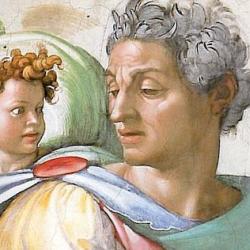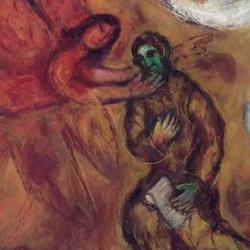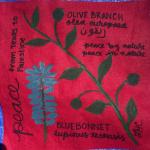Isaiah 7:16 is a puzzle. A child will be born (v. 14), and before he is grown up (so the NASB says) “the land whose two kings you dread will be forsaken.” What land would that be? Perhaps the land of Israel and Aram, but while that meets the threat to Ahaz, it does so indirectly.
The AV offers a better option: “the land that thou abhorrest shall be forsaken of both her kings.” That gets the syntax better and shows that Ahaz, not his enemies, “abhor” the land. We need to make only one adjustment to make sense of this. The verb “abhor” is qutz , already used in verse 6 and translated in the AV as “vex.” Verse 16 should read, “the land shall be forsaken, [the land] which you (’ attah ) vex, [forsaken] from the face of the two kings.”
Thus, though Aram and Israel look to be the troublers of the land, the real troubler is Ahaz. The verse is still ambiguous: Is the land going to be abandoned by Aram and Israel, thus saving Judah from destruction? Or is the land going to be stripped of its inhabitants? It seems that the latter is more likely. This is a threat: Since Ahaz vexes the land, even when the enemies leave, the land will be vexed, and will eventually be depleted.
To see the full import of this, we need to ask what it means for a land to be forsaken from the face of “both of her kings.” What land has two kings? On the surface, it might be the occupation of Judah by the two kings. But verses 8-9, in the light of chapter 6, suggests a different answer. The “land of two kings” is Judah, but Judah doesn’t have two kings because of Aram and Israel. Since David, Judah has always had two kings – the Davidic king on the throne, and King Yahweh of Hosts enthroned in clouds of smoke and fire about the cherubim. That is the land that is going to be forsaken, and it will be forsaken by both of its kings.














